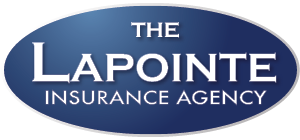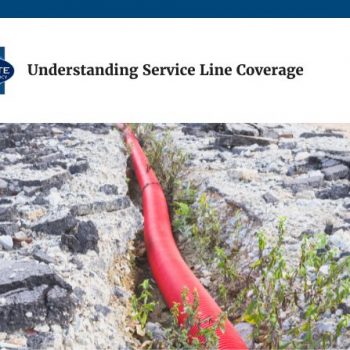34 Car Insurance FAQ’s 2021
- Posted by Daniel Simcock
- On June 29, 2021
In this article, we’ll break down 34 frequently asked questions about car & auto insurance.
Is auto insurance mandatory?
Yes, auto insurance is mandatory in every state across the U.S.
What Does Auto Insurance Cover?
There are several categories of auto insurance, each of which covers a different aspect of your risk as a driver. Here is a brief overview of these types of coverage:
- Liability: If you are deemed at fault in a car accident, liability coverage will pay for repairs, medical costs for injuries suffered by others in the vehicle, plus other expenses related to the accident such as legal fees.
- Two parts: bodily injury liability and property damage liability.
- Collision: If you hit another vehicle or an object (like a guardrail), your collision coverage will pay for damage or repairs to your vehicle after you pay a deductible (up-front amount).
- Comprehensive: Pays for losses to your vehicle if it suffers damage from something other than an accident. For example, if a tree falls on your car or you hit an animal.
- Medical expenses: Pays for injuries that you, a family member, or anyone else riding in your vehicle may suffer in an auto accident regardless of who is at fault.
- Uninsured/underinsured motorist: Pays for injuries and property damage you suffer in an accident when the driver at fault either is uninsured or does not have enough insurance to cover your injuries and damage.
How much car insurance do I need?
There is a minimum imposed by each state, which you can find out through the DMV. Beyond that, you should buy as much car insurance coverage as you feel comfortable with and can afford.
What does car insurance not cover?
General wear and tear and maintenance. Your insurance will not cover an oil change, a tire rotation, or general equipment breakdown, etc.
Does the kind of car I drive influence my auto insurance rates?
Yes. The market value of your car and the history of other drivers with the same make and model play a factor in your auto insurance rates. Certain safety features may not automatically qualify you for cheaper car insurance, but they can prevent you from getting into accidents, saving you money indirectly.
Am I covered if I drive someone else’s vehicle?
Generally speaking, the insurance goes with the car. For example, if you have an accident while driving someone else’s car, the owner’s insurance would apply toward damages first. Your auto insurance would generally apply in the event the owner of the vehicle had no auto insurance or did not have enough auto insurance to pay the damages.
Does my car insurance cover other drivers?
It depends. Your policy may have an “omnibus clause” that covers any driver who has permission to use your vehicle (known as permissive drivers). If an insured driver drives your vehicle, yours will be the primary insurance and theirs will offer secondary coverage.
The best way to make sure that your car insurance covers another person is to have them listed as a named driver on the policy.
Can I put anyone on my policy?
You can include members of your household on your policy, but you must all live at the same address.
Will my policy be cancelled if I have an accident?
Typically, being in an accident will not cause your policy to be canceled.
However, after the facts of the situation are reviewed, you may be required to pay a higher premium for your policy upon renewal.
What happens if I lie about my driving history?
If you lie about your driving history, the DMV reports that you are committing what is known as “soft fraud.” If you do lie, the insurance company can deny you services and cancel your coverage.
Can My Auto Insurance Company Drop Me?
Auto insurance is a contract, and as with many contracts, it can be canceled or voided by either party. You can drop the contract by changing to another company. The following are circumstances in which an insurance company can drop you:
- If you fail to pay your premiums
- If you present fraudulent information on your application for coverage
- If your license is suspended or revoked for any reason, such as too many accidents or driving under the influence
What is an SR-22?
An SR-22 is often considered insurance, but it technically isn’t. It’s simply a certificate from your insurer showing that you have insurance coverage. An SR-22 may be ordered by a judge if you have a less-than-perfect driving record, like getting dinged for multiple moving violations or a DUI.
An SR-22 usually has a filing fee of around $25, and stays with you for around three years.
Can I Get Car Insurance with a Suspended License?
Most insurance companies will not issue or maintain insurance for someone who has a suspended or revoked driver’s license. However, you can work with your insurance agent to file an SR-22 form, which grants insurance coverage for a period of time.
Can you pay for auto insurance once a month or annually?
Most insurance companies leave this to your choice. Some will offer you a lower insurance premium rate if you pay your premiums annually.
Can I deduct my auto insurance from my taxes?
While it truly depends on your situation, in most cases, car insurance is not tax deductible.
Can I change my coverage whenever I want?
Yes, but you may be subject to cancellation fees. If you wait until the end of your policy, then you won’t be charged.
Can an auto insurance company deny you service?
Yes, they can. If you have a DUI on your record, have bad credit or have caused a serious accident, you can be denied service.
It can. If you have a low credit score, your insurance premiums may be higher.
If you only have one ticket on your driving history, your premium rates will not be affected.
Will my auto insurance pay to have my stolen car replaced?
This depends entirely on the insurance coverage you have. Comprehensive coverage will protect you in this type of event.
Will Car Insurance Cover a Hit-and-Run Accident?
Usually, as long as you have car collision or uninsured property damage coverage.
If my garage burns down, will my homeowners insurance cover my car?
No, but if you have comprehensive coverage on your car insurance, it may help cover you for fire damage.
What is gap insurance?
Gap insurance fills the gap between what your insurance company pays and for accident or theft, and what you owe on an existing car loan.
Car insurance pays out depending on your car’s current value. Because many cars lose value quickly, you may find yourself in a situation where you owe more on a loan than what the car is actually worth — for instance, you buy a $30,000 car and in one year it is valued at $22,000, but you still have $25,000 left on your own. Gap insurance covers that $3,000 difference.
Does car insurance cover rental cars?
If you wreck your car and need a car, rental reimbursement or substitute transportation coverage will help you get a rental car.
If you’re a driver for Lyft or Uber, you should consider Rideshare insurance. It’s usually an add-on to your personal policy, and bridges gaps in coverage that occur during a rideshare trip.
Insurance companies break a rideshare trip into 3 periods:
- When you’re waiting for a rider
- When you’re going to pick up a rider
- When you’re driving with a rider on board.
Rideshare companies provide coverage throughout, but especially during Period 1 this coverage can be limited.
Can I get car insurance if I don’t own a car?
Yes. Most car insurance companies offer what’s known as non-owner car insurance policies.
- Does not usually cover collision or comprehensive coverage
- But offer standard liability coverage and may let you add medical and underinsured/uninsured motorist protection.
If you don’t own your own car but still drive often, either by borrowing cars, renting cars, or using services like Zipcar, non-owner car insurance can be an affordable option.
Do I need different insurance for vehicles other than cars?
You may need different types of insurance if you have different types of vehicles, such as:
- Commercial trucks
- Motorcycles
- ATVs
- RVs
Do I Need Special Coverage if I Add New Features to my Car (e.g. stereo, sunroof, truck cap)?
Yes. It’s called custom equipment coverage. Without it, your insurance carrier will only pay you the book value of your car in the event of a claim. This value does not factor in any features you added to the car after it was purchased.
What is a safe driver’s discount?
If you’ve been accident and incident free for a set period (usually 5-6 years), many carriers offer a discount.
What are some common discounts?
- Low Mileage Discounts
- Mult-car credit: When you have more than one car insured on a policy. For example, if you’re married and you have both your vehicle and your spouse’s vehicle on the same policy, you can get the discount
- Good student discount: For high school and college students (under the age of 25) who have a B average or higher (3.0 GPA).
- Defensive driving/driver’s ed courses: If you’ve taken a driver’s ed class, some providers can offer you a discount.
- Student-away discount: For parents of college students who are living 100+ miles away.
Additionally, insurers will often offer lower rates to policyholders who bundle different insurance products together, such as homeowners insurance and auto insurance.
We had the pleasure of answering the next four questions as part of a national survey for MoneyGeek.com.
My insurance rates seem much more expensive than average. What factors could be driving that?
Firstly, if you have gotten into an accident or filed claims, your insurance is likely to increase. But assuming your driving history is in good standing, you may notice your insurance rates increase for other reasons. For example, some insurance companies use credit scoring to rate car insurance. So, if you have a low credit score, your insurance rate may increase.
As well, your zip code can affect your insurance rate. If you’ve moved to a city from a rural/suburban area, you’re likely to see that your insurance rate increase. Usually, the more densely populated an area is, the more expensive the car insurance is going to be.
Lastly, if you’ve changed or upgraded your vehicle, your insurance is likely to increase. High-value or high-performing cars are typically more expensive to insure.
Insurance companies give me very different quotes. Why is the average cost of car insurance so different between insurance companies?
It’s important to realize that insurance companies are for-profit businesses.
They make money while insuring their clients, and they’re going to give the best rates to clients who they think are least likely to file for an insurance claim. Every insurance company has different visions for what makes their “perfect client.” One company may more heavily weigh your credit score, while others may want an impeccable driving history. These variables account for differing prices between insurance companies.
How do I balance risk management and affordability when it comes to car insurance?
I believe you should give yourself enough coverage to be financially sound in the worst-case situation. So, it’s generally preferable to stick with higher coverages and increase your deductibles, as opposed to reducing coverage while maintaining low deductibles. You don’t want to reduce your coverages if you could get the same savings by increasing your deductible. For example, you don’t want to reduce your liability coverage from $100,000 to $25,000 for the same savings it would be to just increase your deductible from $500 to $1000.
What can consumers do to better educate themselves on car insurance policies, coverage and pricing?
There’s a lot of great, free information on the Internet. Of course, there’s also a lot of misinformation or outdated information out there as well. So, you might start by going on trusted websites like MoneyGeek. These sites do a great job of breaking down certain coverages and answering FAQs about insurance.
If you have a specific question about your insurance policy and your coverages, you should be able to contact your agent. Any agent worth their salt should be able to explain your policy to you and answer all your questions in a way that you can understand.
We hope we’ve helped you better understand car insurance. And now we’d like to turn it over to you. Did you learn something new from this article? Or do have a question about your car insurance policy? We’d love to hear from you. Leave a comment below or contact us at info@lapointeins.com.


